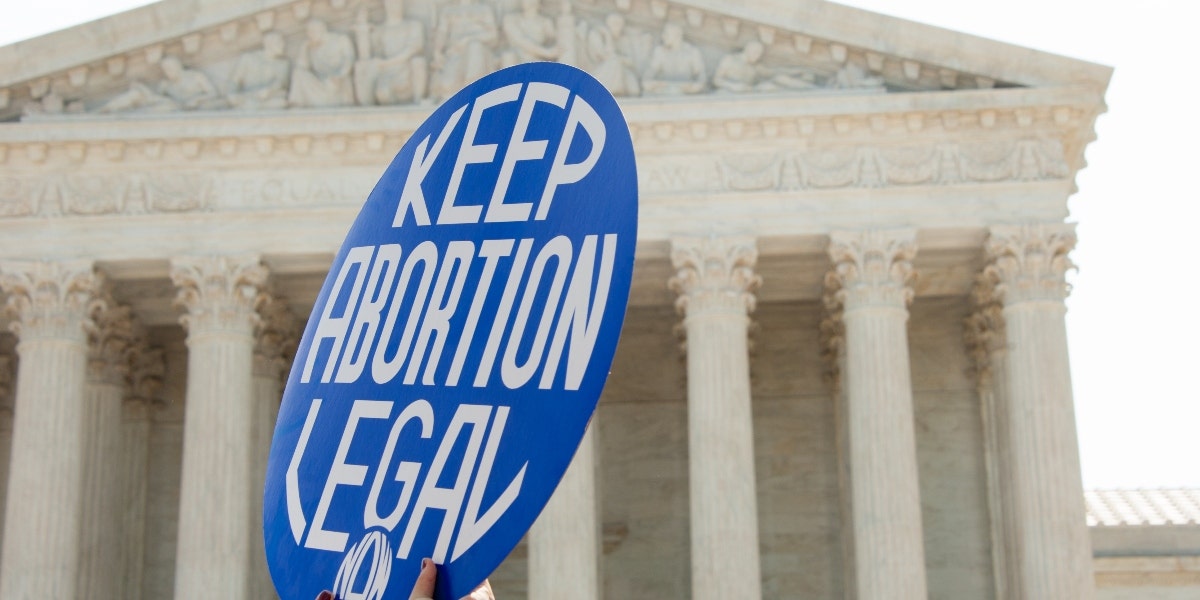Arkansas Felon Sues A Texas Doctor For $10,000 Bounty After Learning He Performed An Abortion
He's putting Texas' anti-choice law to the test.
 Rena Schild / Shutterstock.com
Rena Schild / Shutterstock.com A San Antonio, Texas doctor, Alan Braid, performed an ‘illegal’ abortion and decided to speak out about it on Saturday in order to force a test of legality for the new restrictive state law.
Senate Bill 8 prohibits abortions past six weeks of pregnancy and allows civil suits to be filed against those who break the law — allowing civilians to claim a $10,000 bounty for a successful suit.
The lawsuit is likely what Texas lawmakers hoped for when they made it legal for ordinary citizens to become abortion police.
The case of the Texas doctor is the first known lawsuit under Texas' new abortion law.
Braid is being sued by Oscar Stilley, a “disbarred and disgraced former Arkansas lawyer,” as he described himself.
Stilley is serving a 15-year sentence at home for federal tax fraud and has no connection to the abortion itself.
In fact, he doesn’t even have a strong opinion on the reproductive rights of women and doesn't consider himself pro-life but filed the suit so he could claim the $10,000 bounty, according to The Washington Post.
RELATED: An Expert In Domestic Violence Explains Just How Bad The Texas Abortion Ban Really Is
Later, Stilley said in a phone interview with CNN that he is an opponent of the law but wanted to clear the way for a judge to rule on its constitutionality.
"I am a supporter of the Constitution, and I am opposed to the law," he said.
A second lawsuit was filed against Braid by Felipe N. Gomez and asked the court to strike the new abortion law down as invalid.
“If the law is no good, why should we have to go through a long, drawn-out process to find out if it’s garbage?” Stilley said after filing the complaint in state court in Bexar County.
“I understand that by providing an abortion beyond the new legal limit, I am taking a personal risk, but it’s something I believe in strongly,” Braid said in an op-ed in The Washington Post. “I have daughters, granddaughters and nieces. I believe abortion is an essential part of health care. . . . I can’t just sit back and watch us return to 1972.”
For Dr. Alan Braid, his pro-choice stance is personal.
He started his obstetrics and gynecology residency at a San Antonio hospital in 1972 — witnessing the deaths of three teenagers who performed illegal abortions.
“One I will never forget. When she came into the ER,” he said, “Her vaginal cavity was packed with rags. She died a few days later from massive organ failure, caused by a septic infection.”
A year later, the Supreme Court issued its ruling in Roe v. Wade in 1973, recognizing abortion as a constitutional right.
The OB/GYN said he performed the first-trimester abortion on September 6th, less than a week after Senate Bill 8 took effect on September 1st, stating that he had “a duty of care to this patient, as I do for all patients.”
Nancy Northup, president of the Center for Reproductive Rights which is representing Braid, said her client challenged the legality of the law because the alternatives for his patients are "untenable" and that the law is "creating havoc on reproductive health care in Texas."
Texas Right to Life, a pro-life group, slammed the lawsuits, calling them “self-serving legal stunts.”
In a statement released by John Seago, the organization’s legislative director, he said “we believe Braid published his op-ed intending to attract imprudent lawsuits, but none came from the Pro-Life movement.”
The fight against the new Texas law has been growing and gathering steam. Earlier this month, the Biden administration separately sued the state of Texas in order to block the law — setting a hearing for October 1.
On the other end of the argument, Mississippi filed a case asking the Supreme Court to overrule Roe v. Wade.
Conservative legal commentator Ed Whelan discouraged supporters of the law from suing the doctor and giving him the “test case that he is seeking,” asking them to wait until the Supreme Court ruling comes after the December 1st hearing.
Braid, who owns Alamo Women’s Reproductive Services, says that he has met with patients seeking abortions every day since the ban took effect.
“There’s an awful feeling in the room until we can confirm their gestational age,” he said. Patients who start sobbing after being turned away because they’re too far along, or crying in relief that they can move forward in their abortions because they haven’t hit the limit.
If Braid wins the case, that opens the doors for Texan doctors to continue with abortion procedures without fearing Senate Bill 8 hampering them.
Isaac Serna-Diez is a writer who focuses on entertainment and news, social justice and politics.
